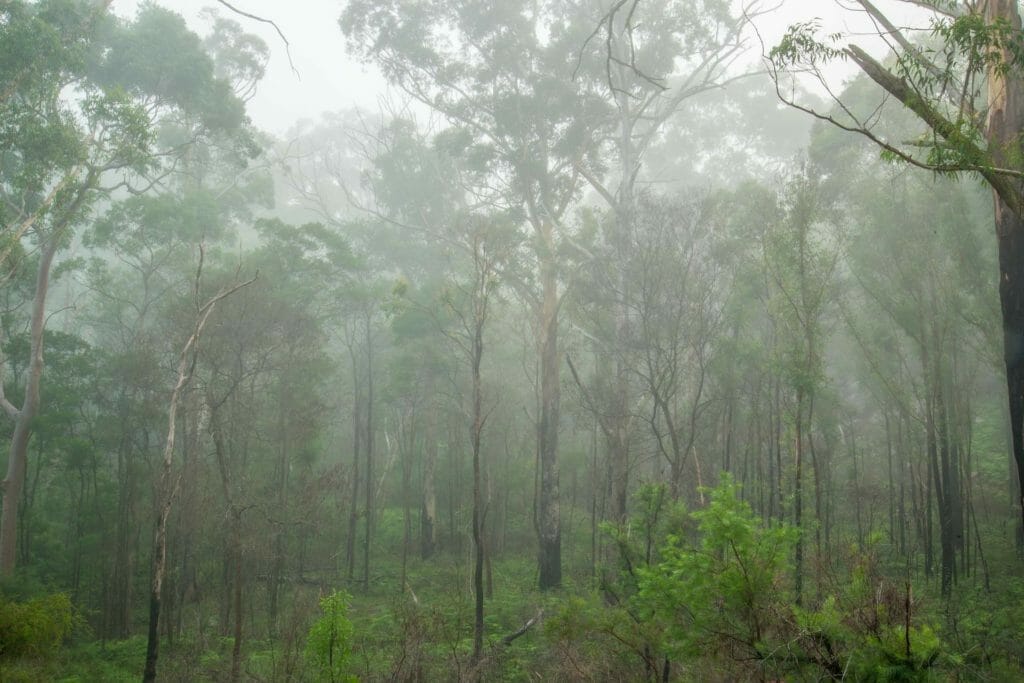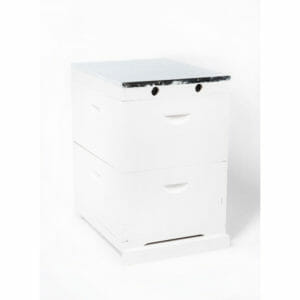The continued logging of natives like Jarrah and Marri in WA has environmentalists alarmed. And the trend could mean lost opportunities for beekeepers too.
Karri, Marri and Jarrah forests are highly valuable and irreplaceable resources for many beekeepers. But despite public concern over deforestation and the ongoing work of scientists and activists, forests like these continue to be logged.
Right now, The Wilderness Society and other groups are trying to stop the renewal of Western Australia’s Regional Forest Agreement (RFA), which they describe as “a disaster” for Western Australian forests. It’s reported that environmental provisions are not being met, with damaging consequences. And the 20-year RFAs are regarded as problematic in other states too. Professor David Lindenmayer from The Fenner School of Environment and Society at ANU summarised the apparent dysfunction of RFAs for The Conversation back in 2015:
“RFAs are entrenching native forest logging as a loss-making enterprise that degrades important values such as water availability, carbon storage, wildlife conservation, and the tourism value of forested areas. They are not giving Australians a sound return on their publicly owned natural assets. The agreements are ideological, not logical. It’s time for a rethink”.
The last independent review of the WA RFA reported that the “community has widely differing views with respect to desired outcomes under the WA RFA, and these competing views continue to cause debate over the management of the forests”. Obviously, there are logging jobs at stake too. And while environmentalists are vocal about biodiversity loss and climate change, the forestry industry and logging communities argue that the economic value of these resources should have equal weight to environmental value.
But with reports that the native logging industry is in decline, even operating at a loss, it’s understandable that environmentalists disagree. They see the climate crisis, threatened species and Western Australia’s history of forest collapse as more pressing emergencies than propping up a dying industry.
The Wilderness Society cites these concerns in their argument against the renewal of the WA RFA. In a referenced form letter to the Premier which you can sign and send here, it argues that the “abject failure” of the WA RFA is demonstrated by the following:
- At least five unique WA forest wildlife species have been up-listed to ‘Endangered’ or ‘Critically endangered’ since the RFA was signed, while dozens more are being driven closer to extinction [1]
- 195,000 hectares logged since 1999 without proper environmental assessment [2]
- 50 South West sawmills closed since the RFA was signed [3]
- A 70-80% decline in employment in the native forest logging industry since the WA RFA was signed [4]
- 90% of jarrah log volume continues to end up as low grade products like firewood and charcoal [5]
- Financial results for the past five years show a cumulative operating loss of $5.79 million for the Forest Products Commission [6]
- Recent industry report showing that more than 60% of regional West Australians oppose logging of native forests. [7]
It seems that preserving more native forests has more economic potential than logging. Obviously, there’s tourism. And leaving trees in the ground is also essential to mitigating climate change, which any farmer in drought-stricken areas can tell you is a very real economic threat. And then there’s another growing industry that needs forests left in the ground: apiculture.
Eucalypt forests and other native woodlands make for valuable beekeeping sites, particularly for large scale, commercial apiaries. Add to that the fact that apiculture is a sustainable and growing industry. Then there is the potentially lucrative interest in Western Australia’s medicinal Marri and Jarrah honey overseas.
These are just a few additions to the case for preserving more of our native forests. If you agree, The Wilderness Society’s form letter (including references) to the Premier is available here.
Find Out More about the WA RFA:
The most recent independent review of the WA RFA from 2014, including 17 recommendations, is here.
Keep up to date with the WA RFA at the Department of Agriculture.
Coming up Next on The Buzz: We chat to Andrew Morcom of AC8 Apiaries and The Bee Saver about securing commercial apiary sites and his preferred native flora.

Visit the Bee2Bee online shop for beekeeping equipment and supplies.




